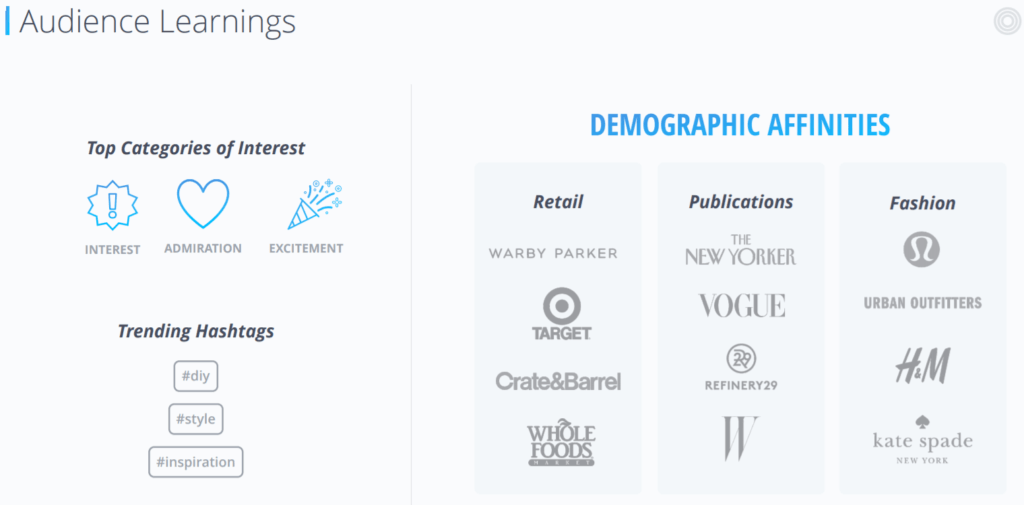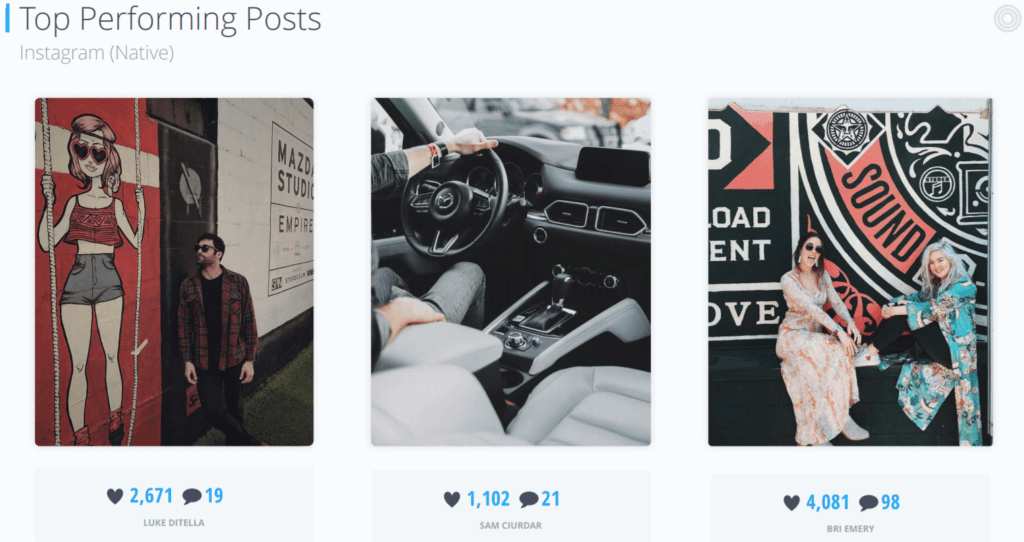Ushering authentic advertising – Can machines help marketers understand their audience better for the benefit of all?

Influential.co is a platform using machine learning to improve the development and deployment of marketing campaigns with influencers on social media.
Influential.co is a platform using machine learning to improve the development and deployment of marketing campaigns via influencers on social media. Marketing is an art and science; it is notoriously difficult to link advertisement spend to impact on user behavior and company brand. Furthermore, it is difficult to advertise in a way that feels authentic [1]. The lack of visibility into user intention, behavior, and reaction to marketing campaigns drive key challenges for companies:
- Standard performance measures like ROI are difficult to calculate and thus drive inefficient spend.
- Output rate of campaigns is limited because of lengthy advertisement validation with users.
- Lead time for future campaigns is long because iterative learning is difficult. The observed impact from past campaigns is influenced by external factors and direct user feedback is slow and costly.
The increase in user generated data volumes, access to social media data, and development of machine learning statistical techniques has made it possible to tackle these challenges. The ecosystem producing this data is made up of companies advertising, influencers building a following, and users who engage with both. As a platform that connects these stakeholders, Influential.co is well positioned to leverage these trends to create an entirely new capability within the advertising industry.
In the short term (next 2 yrs), the company is working on attracting users to the platform, demonstrate results to them, and increase the number of campaigns tracked by their service. To date Influential.co has attracted over 15,000 social media influencers with over 4 billion followers, and various Fortune 500 companies [2]. However, the key capability it’s building hinges on insights gained from influencer campaign performance. In the mid-term (2-10yrs) they will need to create efficient alignment between each stakeholder to unlock a win-win-win dynamic. Companies require a successful match between their brand message and the influencer personality. Influencers need to find corporate sponsors for revenues with products that don’t go against their personal brand. They also need to understand why some posts resonate strongly with their followers and other posts fall flat. Finally, consumers want to hear about products they can appreciate, from people they trust, in the right place, and at the right time.
Deeper consumer insights will enable an efficient alignment between stakeholders. Influential.co is deploying IBM Watson’s Natural Language processing algorithms and Personality Insights algorithms for advanced textual analysis. Two things are analyzed by these algorithms: 1) Influencer content they’ve written on various platforms, and 2) Content generated by potential customers (influencer audiences) engaging with influencers, company sponsored campaigns, and broader interests. The Natural Language algorithm analyzes these texts for things like content topics, emotions conveyed by specific phrases, and keywords [3]. The Personality Insight algorithm draws on psychological theories modeling the link between language used by a person and their “personality, thinking style, social connections, and emotional states” [4]. It determines specific characteristics of a user’s personality (describes how they engage with the world), needs (describes what aspects of a product resonates with them), and values (describes what influences their purchase decisions). Although, these algorithms are gathering baseline data and refining their methodology, the deeper consumer insights regarding behavior towards specific brand types and product types won’t be accessible until the longer term.
Shown below are some results from a current influencer campaign by Mazda [5]:
These results are enough to demonstrated to Mazda increase effectiveness in marketing spend and demonstrated to influencers increase effectiveness in their posts– promotional influencer posts saw a 30% engagement lift compared to their own organic content [1]. Both gained better understanding of who their highly engaged audience is and why they are engaging.
To strengthen their value proposition in the short term, I believe Influential.co needs to link the increased engagement from influencer campaigns to a company’s performance in customer acquisition funnels. This will give a stronger measure of campaign ROI. They should also invest significant human resources to validate algorithm outputs to ensure limits of interpretation are well defined and to avoid bias in data. In the mid-term, filtering out the noise from social media engagement metrics will become important. Many people can “like” a post out of habit or to support the person, not the product. If we think of marketing campaigns as short narratives to communicate a message effectively, then building off Disney Research’s work to apply neural network models to predict the quality of short narratives from social media stories could be a strategic decision [6].
While I can understand the general direction this company is headed, one important question left to consider is: With influencers becoming more aligned with corporations, how can they retain the trust of their audience?
SOURCES
- [1] Menabney, D. (2018). Why Google, Ideo, And IBM Are Betting On AI To Make Us Better Storytellers. [online] Fast Company. Available at: https://www.fastcompany.com/3067836/why-google-ideo-and-ibm-are-betting-on-ai-to-make-us-better-storytellers [Accessed 14 Nov. 2018].
- [2] Olenski, S. (2018). Is A Machine Better At Identifying Influencers Than Marketers?. [online] Forbes. Available at: https://www.forbes.com/sites/steveolenski/2017/03/16/is-a-machine-better-at-identifying-influencers-than-marketers/#37de24af5525 [Accessed 14 Nov. 2018]
- [3] bluemix.net. (2018). IBM Cloud Docs. [online] Available at: https://console.bluemix.net/docs/services/natural-language-understanding/index.html#about [Accessed 14 Nov. 2018].
- [4] bluemix.net. (2018). IBM Cloud Docs. [online] Available at: https://console.bluemix.net/docs/services/personality-insights/index.html#aboutImpact on metrics | Preliminary results for MAZDA [Accessed 14 Nov. 2018].
- [5] influential.co. (2018). [online] Available at: https://decks.influential.co/MazdaSXSW_CaseStudy.pdf [Accessed 14 Nov. 2018].
- [6] Wang, T., Chen, P. and Li, B. (2018). Predicting the Quality of Short Narratives from Social Media. [online] S3-us-west-1.amazonaws.com. Available at: https://s3-us-west-1.amazonaws.com/disneyresearch/wp-content/uploads/20170816094024/Predicting-the-Quality-of-Short-Narratives-from-Social-Media-Paper.pdf [Accessed 14 Nov. 2018].







I understand the concern of influencers risking backlash from their followers as their content appears more aligned with corporations. I would be interested to learn how long these ad hoc partnerships between influencers and corporations persist. Given the fact that influencers face a perennial tradeoff of producing new content versus building and sustaining an audience I wonder how sustainable this model is in the long term. Additionally, internal to these corporations, what is the effect of friction between in-house marketing efforts and marketing efforts outsourced to machine-learning matched influencers? Can the organization keep up and learn from the influencers to save on their own marketing costs?